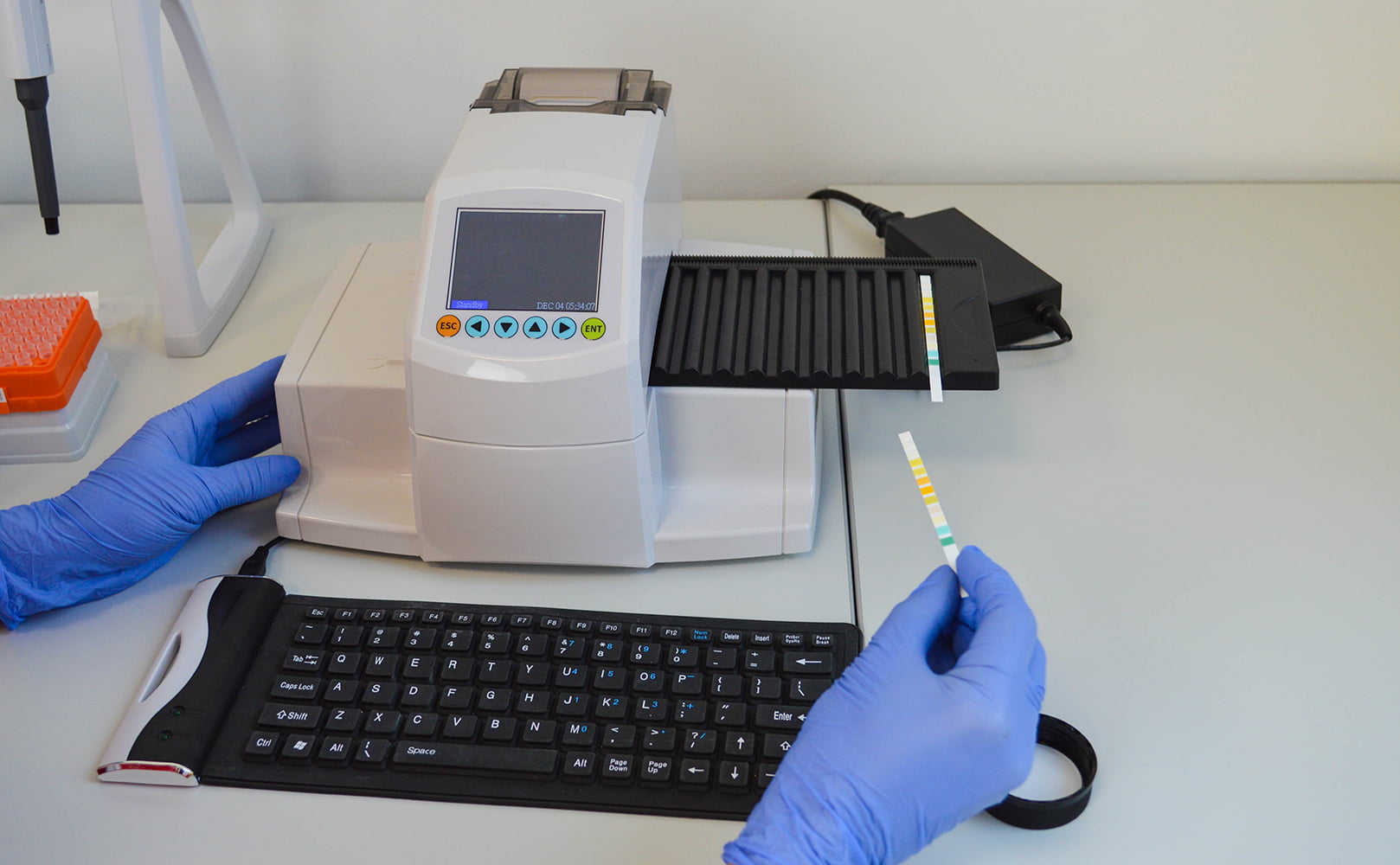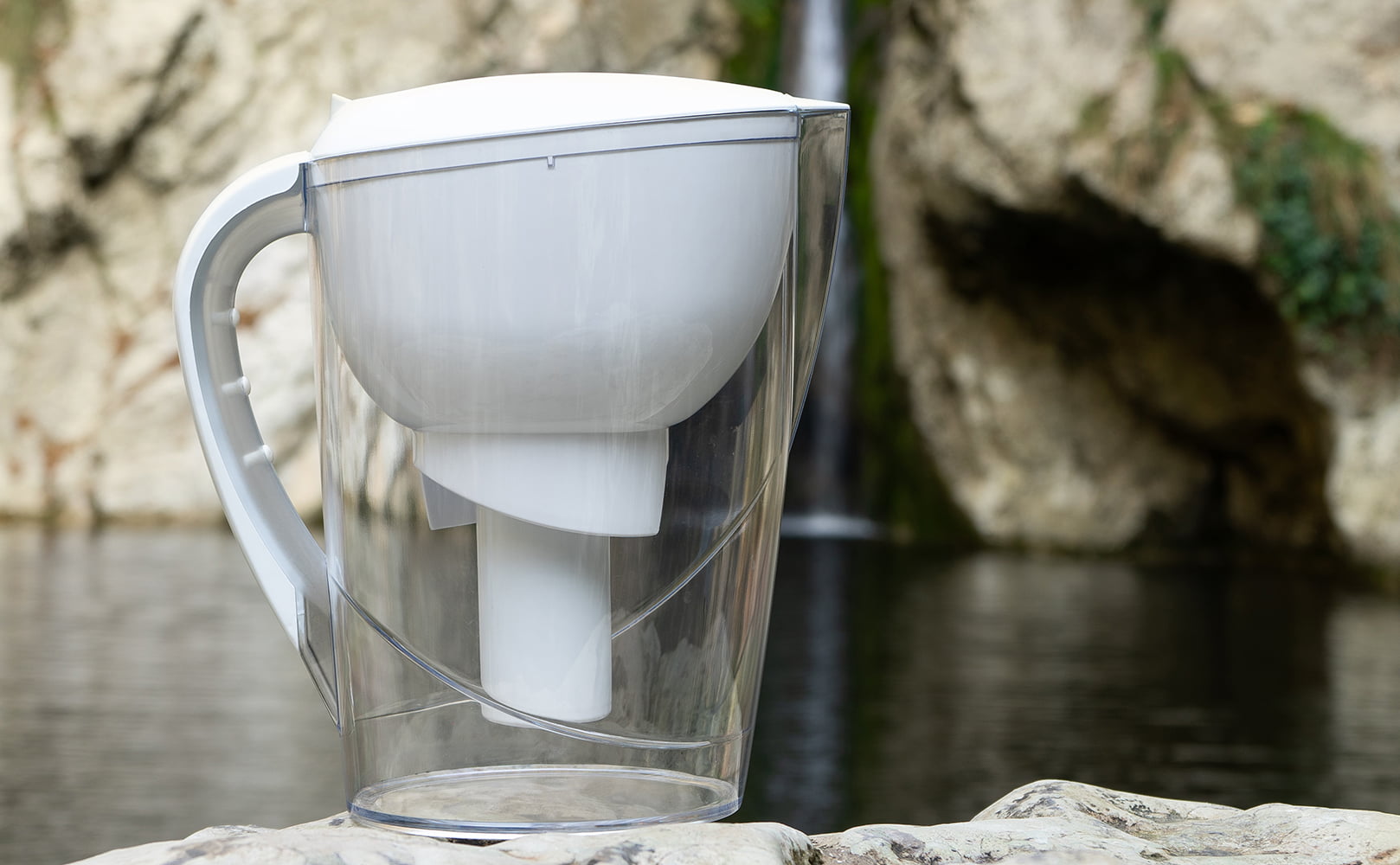Where Can I Get My Water Tested for Lead?
Written by: Gene Fitzgerald // Last Updated: Jan 4, 2023
This page may contain affiliate links. If you buy a product or service through such a link we earn a commission at no extra cost to you. Learn more.
Lead is one of the most toxic heavy metals to the human body. Exposure to it can lead to severe consequences for an individual’s health, including irreversible damage to the brain.
Since drinking water is a potential source of lead, it’s essential to take precautions like water tests to make sure you’re in the clear.
In this article, we’ll tell you where you can get your water tested for lead and also give you information about how to protect yourself from lead exposure.
Key Takeaways
There are several places/ways to get your water tested for lead:
- EPA-certified labs: This is the most advisable option that provides 100% accurate results. Check online for a lab nearby.
- Contact your local water supplier to find out if they offer programs for testing. The EPA also requires them to conduct water tests regularly and send the reports to their customers for free.
- Many water treatment companies also offer free testing for potential or existing customers.
- DIY lead water test kits are available online and at local hardware stores.
Where Can I Get My Water Tested for Lead?
If you want to get your water tested for lead, there are several ways to do it. For instance, you could:
Find an EPA-Certified Lab
This is the most advisable option. Private labs certified by the EPA will give you 100% accurate results. They can also analyze your water to let you know what other contaminants might be lurking around and their exact concentrations.
It’s important to look for a certified lab because they will abide the EPA’s criteria.
To find a suitable lab, check the EPA’s website. It shows all certified labs in your area. Alternatively, call their safe drinking water hotline.
Most states have approved labs, so finding one close to you shouldn’t be hard.
Have Your Water Tested by Your Local Water Supplier
Some water utilities offer programs for water testing to customers. You can contact your water supplier to find out if they’re involved in such activities.
However, even if they aren’t, the EPA obliges them to conduct water tests regularly and send the reports to their customers for free.
You can find these reports readily available online.
They contain information about the different contaminants in your water and their concentration levels. For example, if there’s lead in your water, it’ll be listed alongside its exact concentration.
You can use this information to determine the amount of risk you are exposed to. For example, lead levels above 15 ppb (parts per billion) are a serious cause for concern.
Contact a Water Filtration Company
Another place you could try is a water treatment company. Some of them do free water tests for potential or existing customers.
However, you need to be careful when dealing with such companies because some service providers won’t be entirely honest. You may have to check reviews and browse multiple companies before finding a reliable one.
Buy a DIY Lead Test Kit
If you’d like to test your water on your own, you can buy a DIY lead water test kit. You’ll get your results much faster this way – within seconds in most cases.
These kits are also quite accurate and inexpensive. All you need to do is follow the instructions, and you’re good to go.
Remember that water samples are best collected in the morning or when the water hasn’t been used for over six hours.
The Health Effects of Lead in Drinking Water
Although there are varying levels of risk for different demographics, lead is still unsafe for everyone. Here are some of the side effects it can have when consumed:
- Hearing loss
- Cardiovascular diseases
- Increased blood pressure
- Kidney problems
- Immune system dysfunction
- Anemia
- Reproductive issues
- Memory impairment
The above effects occur in normal adults. However, infants and children are even more vulnerable to the effects of lead poisoning. For them, exposure can result in:
- Weight loss
- Abdominal pain and/or fatigue
- Vomiting
- Seizures
- Irritability
- Slow growth
- Low IQ
- Behavioral problems
- Intellectual disabilities
- Damaged nervous system
In pregnant women, lead exposure can cause:
- Premature birth
- Reduced growth of the fetus
- Miscarriages and stillbirths
How to Protect Yourself and Your Family
To protect yourself and your family from lead, you can:
Get a Water Filter
Buying a lead water filter for your home is often the best thing to do. It will help you especially when you can’t find or remove the source of lead contamination.
A filter will also get rid of other impurities in your water.
If you decide to get one, choose the one best suited for removing Lead. Filters usually come with NSF certifications that help you tell which impurity they can remove. So, if you’re looking for a lead filter, always check for NSF standard 53.
Replace Lead Plumbing
Lead pipes, solder, and fixtures are a common source of lead exposure, especially in homes built before 1986 when lead pipes were banned.
So if your plumbing is made of lead, try to have it replaced.
By the way, an easy way to find out is by placing a magnet on the pipes. If the magnet sticks, then it’s not lead. You can also scratch the surface of a pipe with a key. If you find a silver-like or shiny area underneath, the pipe is most likely made of lead.
You could also have a plumber check all the plumbing in your home to identify any lead sources.
Drink bottled water
Bottled water may not seem economical, but it’s better to choose safety first.
Drinking bottled water guarantees that your drinking water is free from lead and other impurities for the most part.
You can turn to this solution until you can remove the lead source or get a water filter for your home.
If you have any questions about where to get water tested for lead please don’t hesitate to leave a comment below!
Information provided on BOS is for educational purposes only. The products and services we review may not be right for your individual circumstances.
We adhere to strict editorial guidelines. Rest assured, the opinions expressed have not been provided, reviewed, or otherwise endorsed by our partners – they are unbiased, independent, and the author’s alone. Our licensed experts fact-check all content for accuracy. It is accurate as of the date posted and to the best of our knowledge.



